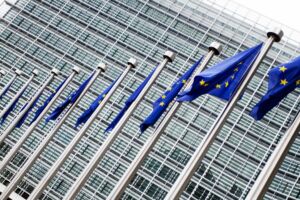Opinion
Trading Kingdoms: Investor protection against state regulation
This article is more than 10 years old.

Can the TTIP cure the EU’s economic pain? (photo: archives)
Europe is still recovering from the financial crisis and the TTIP (Transatlantic Trade and Investment Partnership) is supposed to be the panacea for its economic pain. Despite everyone agreeing that it will provide the necessary growth, the process has been blocked by the gridlock on investment protection and the Investors-to-State Dispute Settlement (ISDS).
Expanding trade
EU combined outward and inward FDI (Foreign Direct Investment) stocks stand at nearly 9 trillion euros. That is over half the value of global merchandise trade in 2013. As an economic block, FDI is very important for expanding our trade links and expanding the global value chain. The US is our largest single trading partner and recipient of our FDI; consequently agreeing on a way forward on ISDS is very important in securing a FTA (Free Trade Agreement) with them.
Shared vision
GEs investments in Europe (analysed in detail in the paper) are just one example of US companies’ continuous commitment to fostering economic partnerships with the EU. The flow goes the other way as well. EU member states’ combined investment in the US tops 1.6 trillion euros across multiple sectors, from healthcare to energy. This clearly illustrates the shared vision for growth from both sides of the Atlantic.
The right balance
While we acknowledge that investing in some of these sectors bears high risk for those doing so, we must not forget that profits must not come at the unreasonable expense of the public. It’s something that Corporate Europe Observatory fears – that ISDS will place EU states in a challenging predicament from day one with a “chilling effect”.
This conclusion is challenged by the Danish Institute of Human Rights, which believes that the protection of investors and businesses is just as important as protecting the welfare of citizens. Their conclusion here is: how do we create that balance?
Strengthened alliance
As the US ambassador to Denmark stated at our April conference: “It requires a careful approach to investment protection and, in the process, the economic alliance between the EU and the US will be strengthened.”
As an independent body, the British Chamber is delighted to facilitate this type of thought-provoking debate.
About










































